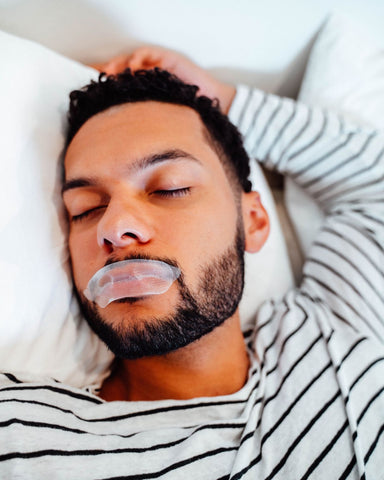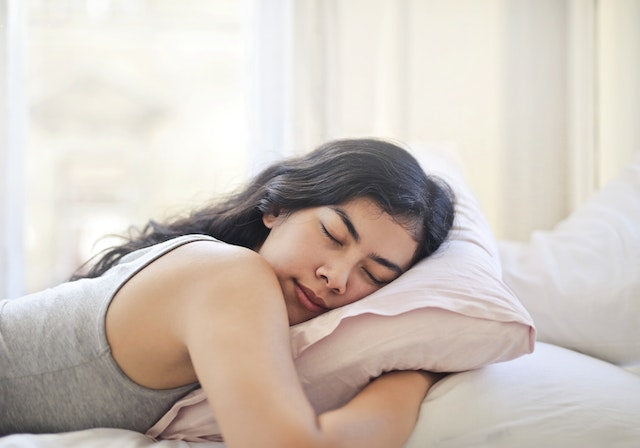It’s estimated that nine million adults in the U.S. have Attention Deficit Hyperactivity Disorder (ADHD), but 85 percent of them don’t know it yet.
Of adults with an ADHD diagnosis, around 75 percent experience chronic sleep problems.
If you find yourself unable to fall asleep until the late hours of the night, a circadian rhythm disorder called Delayed Sleep Phase Syndrome (DSPS) could be the cause.
You may even use caffeine to “reset” your patterns the next morning, only to feel no difference in energy or focus.
If you find yourself asking, “why does caffeine not affect me?” the answer might be linked to DSPS or ADHD.
Until recently, sleep problems and ADHD were thought to be separate issues. Recent research suggests the theory that ADHD is directly linked to issues achieving regular circadian sleep.
This specifically includes the delayed onset of sleep. If you have issues falling asleep at a reasonable hour, ADHD may be to blame.
Before we uncover the link between ADHD and delayed sleep, we must first examine additional symptoms associated with ADHD.
Defining Adult ADHD
ADHD is a mental health disorder associated with difficulty focusing, hyperactivity, and more.
While some are diagnosed with ADHD as children, others may not recognize symptoms or receive a diagnosis until adulthood.
Children diagnosed with ADHD may outgrow it, but around 60 percent of children diagnosed with ADHD as kids also have it as an adult.
Symptoms of adulthood ADHD may not be as clear as symptoms in children.

In adults, issues with impulsiveness, restlessness, and problems focusing may be present, while hyperactivity decreases with age.
Additional adult ADHD symptoms include difficulty following directions, remembering information, organizing tasks, or finishing work on time.
Treatment typically encompasses certain medications or counseling.
For both children and adults, difficulty sleeping is a commonly shared symptom of ADHD. Like the other symptoms, this can easily get in the way of personal development and success.
In fact, an estimated 25 to 50 percent of people with ADHD experience at least some sort of sleep problem, often including insomnia and the delayed onset of sleep.
What is Delayed Sleep Phase Syndrome (DSPS)?
It’s no secret: some people just have a harder time falling asleep than others.
In adults with ADHD, upwards of 70 percent report spending more than an hour attempting to fall asleep once they reach age 30.
If a person’s sleep is delayed by two hours beyond their desired bedtime, this is considered “Delayed Sleep Phase Syndrome,” or DSPS.
DSPS doesn’t just interrupt bedtime - it leads to difficulty waking up at desired times in the morning. As a result, DSPS disrupts normal circadian rhythms and, in turn, our lives.
For example, someone with DSPS may desire to fall asleep at 10 PM, but instead, they don’t drift off until well after midnight.
Therefore, their daily wake-up time of 6 AM becomes increasingly difficult to achieve, causing increasing tiredness during the day due to sleep deprivation.
The theory about why those with ADHS have DSPS points to the idea that those with ADHD have a delayed body clock.
In those with ADHD, the sleep hormone melatonin known for signaling to the body and brain to sleep doesn’t ramp up production when it should.
@somnifix Have #ADHD & trouble falling asleep? ⏰ #DelayedSleepPhaseSyndrome may be the cause! 75% of people with ADHD also have #DSPS , a #circadianrhythmdisorder ♬ Caution - KAYTRANADA
However, not everyone who experiences DSPS has ADHD. Shift work, traveling, medication, or other circumstances may disrupt our circadian rhythm and melatonin production.
Regardless of the cause, you may opt for caffeine during the day to help reset your circadian patterns. However, this does more harm than good for those with DSPS and ADHD.
Why Does Caffeine Not Affect Me?
If caffeine doesn’t affect you, your tolerance may be too high. Many with ADHD are known to overconsume caffeinated beverages, thinking they will further boost concentration.
Dopamine levels in the brain need to remain within a very narrow margin in order to achieve focus.
For those with ADHD, dopamine levels are naturally lower than the average person. Therefore, stimulants help to increase these levels.

But in ADHD sufferers who take medication to stimulate dopamine, adding caffeine can push these levels too high, creating anxiety.
Although some studies have found that small amounts of caffeine can help boost concentration in those with ADHD, most people report that it makes their ability to focus worse.
Moreover, some find that caffeine has zero effect, while others say it makes them tired.
Even more outrageous, some with ADHD claim that drinking coffee before bed helps them sleep.
If have issues with sleep and focus and you find yourself asking, “why does caffeine not affect me?” The answer may surprise you.
Since caffeine is a diuretic, it can reduce the effectiveness of your medication by flushing it out of your body faster than normal.
Stimulant ADHD medication also reduces your tolerance for caffeine – and your favorite caffeinated beverages likely have more caffeine than you may think.
Moreover, although both ADHD medications and caffeine are stimulants, they affect the brain differently.
In “Taking Charge of Adult ADHD,” author Dr. Russell Barkley explains that caffeine targets the wrong brain neurochemicals for those with ADHD.
ADHD meds increase neurotransmitters dopamine and norepinephrine, boosting focus. In contrast, caffeine blocks the neurotransmitter adenosine known to promote sleep.

Begin tracking your consumption to find out exactly how many milligrams of caffeine you consume regularly. If you’re drinking more than 400 mg per day, you’re drinking more than the daily recommended amount.
Start to taper down your consumption and increase your water intake to prevent dehydration to conquer caffeine dependency known to disturb sleep patterns, whether you feel that caffeine affects you or not.
From here, focus on changing sleep patterns with recommended tactics known to reset your circadian rhythm.
Treating DSPS: Is It Possible?
Treating DSPS may generally involve more than one method.
Moreover, if you continually struggle with altering your sleep habits on your own, the help of a sleep specialist may be necessary.
Successful treatment options may include:
- Bright light exposure – expose your eyes to the morning sun for at least 30 minutes upon waking.
- Chronotherapy – this technique delays your bedtime by two hours every few days until a normal sleep schedule resumes. Chronotherapy has proven itself as a successful treatment for those with both ADHD and DSPS.
- Melatonin supplements – melatonin is a hormone known to control your sleep-wake cycle. Taking a small amount for a short period of time can help get your sleep back on track.
Outside of these techniques, improving your overall sleep hygiene may help trigger feelings of sleep at an appropriate time of night.
Building solid sleep habits means cutting back on caffeine, alcohol, and tobacco. Moreover, avoid vigorous exercise in the evening and opt for light movement instead.
In addition to sleep aids like melatonin at night or bright light in the morning, add mouth taping and nasal breathing to the mix.
Improved Breathing Patterns = Improved Sleep Patterns
Among the lifestyle choices that plague our sleep, our breathing patterns are at the top.
Many of us breathe through our mouths rather than our noses. Mouth breathing is known to place the body and mind in a state of dysfunction.

Therefore, to put an end to dysfunctional sleep, we must put an end to dysfunctional breathing.
Mouth breathing places the body in a state of fight or flight and causes airway tissues to fall backward, leading to snoring and sleep apnea.
The mouth wasn’t designed for breathing, but the nose was!
The nose warms, filters, and humidifies the air we breathe, pumping in nitric oxide to help more efficiently oxygenate the body.
We can train ourselves to nasal breathe during the day, but what about nighttime? Mouth tape is a powerful tool to prevent snoring and mouth breathing known to fragment sleep.

Our tape provides a gentle, non-toxic adhesion free from irritating chemicals in other tapes known to cause skin rashes.
What’s more, our Mouth Strips are created from recycled, hypoallergenic materials and feature a small breathing vent to allow for mouth breathing in emergencies, such as overnight congestion.
Add SomniFix to your sleep hygiene recipe to help keep your sleep patterns in check, beat delayed sleep, and end your dependency on caffeine once and for all!





